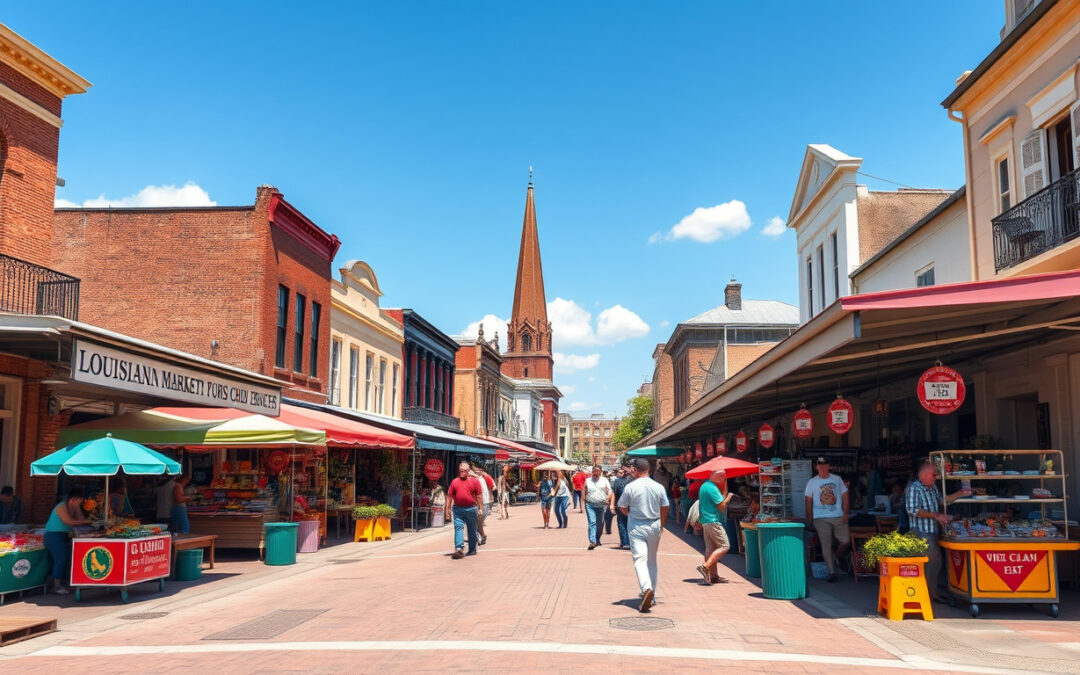
BLOG
In the state of Louisiana, residents and visitors alike may find themselves wondering, ‘What is the blue law in Louisiana?’ Blue laws have a rich historical context, deeply rooted in the cultural and social fabric of the state. As we explore this intriguing aspect of Louisiana’s legal landscape, we will delve into the definition of blue laws, their historical background, current regulations, and their implications for businesses and consumers. Additionally, we will weigh the arguments for and against these laws while contemplating the future of blue laws in Louisiana. Join us as we navigate this captivating topic that bridges tradition with modern-day legal practices.
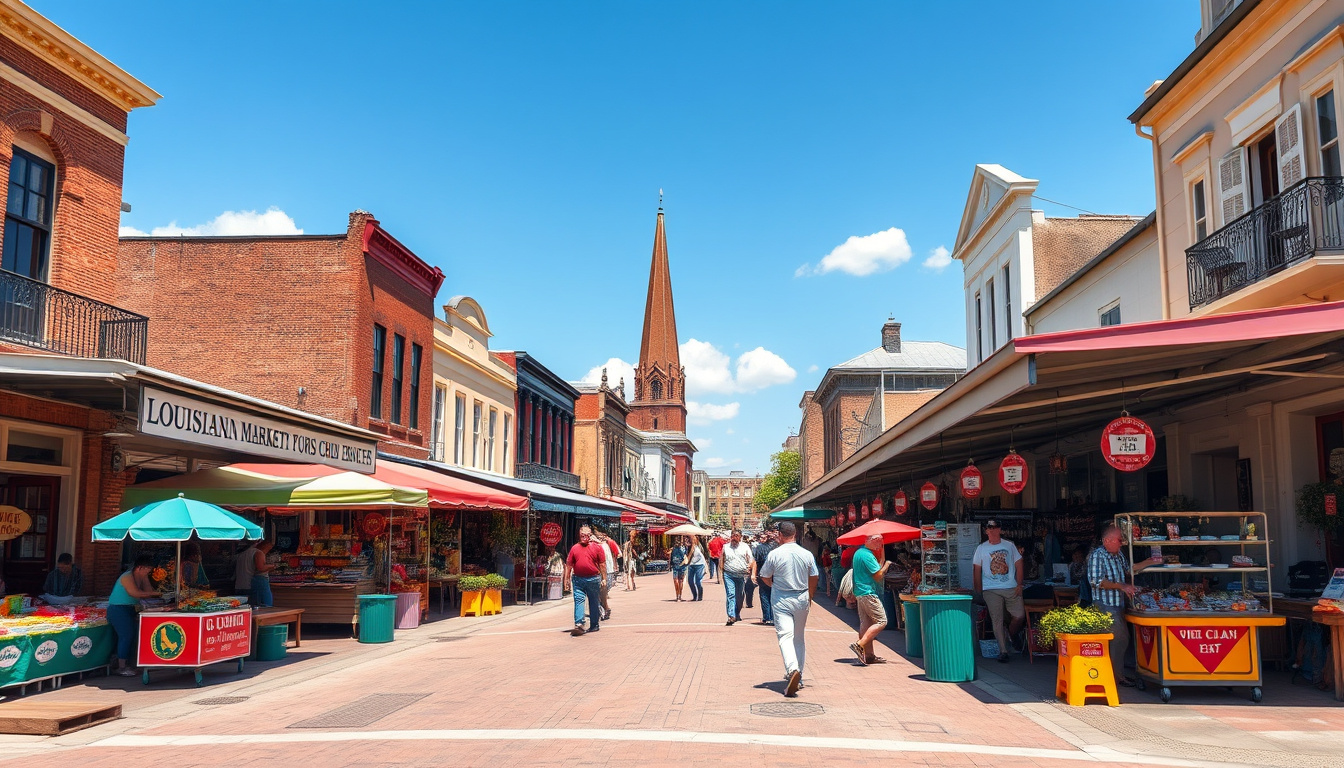
Key Takeaways
- Blue laws in Louisiana restrict certain activities on Sundays, primarily impacting retail operations.
- Historically, blue laws originated from colonial times, reflecting religious observance and moral standards.
- Current regulations allow specific exemptions for businesses, but many still face restrictions on Sunday sales.
- Proponents argue blue laws preserve family time and community values, while opponents claim they hinder economic growth.
- The future of blue laws in Louisiana is uncertain as public opinion and economic needs continue to evolve.
Definition of Blue Laws
Blue laws, often referred to as Sunday laws, are regulations that restrict or ban certain activities on Sundays, primarily to uphold the traditional observance of this day as a time for rest and worship. In Louisiana, these laws have historical roots and are part of the state’s unique legal framework. So, what is the blue law in Louisiana? Essentially, Louisiana’s blue laws prohibit specific activities, such as the sale of alcohol, on Sundays. This legislation seeks to maintain a balance between social, religious, and commercial activities within the state. However, it’s important to note that certain local jurisdictions may have their own variations or exemptions regarding blue laws, making the application of these rules somewhat complex. Understanding Louisiana’s blue laws can provide insights into the state‘s cultural values and regulatory environment.
Historical Background of Blue Laws in Louisiana
Understanding what the blue law in Louisiana entails requires a dive into the historical context that shaped its development. Blue laws, which restrict certain activities on Sundays, have their roots in colonial America and reflect a mix of religious and social values. In Louisiana, these laws were established primarily to uphold community morals and encourage church attendance. Over time, the blue law in Louisiana has evolved, but remnants of its original intention remain embedded in state legislation. For instance, many restrictions surrounding business operations and leisure activities on Sundays still apply, influencing how residents plan their weekends. This blend of historical precedent and cultural adherence makes the blue law an intriguing aspect of Louisiana’s legal landscape, prompting many to question what specific regulations continue to affect them today.
‘Laws are like cobwebs, which may catch small flies, but let wasps and hornets break through.’ – Jonathan Swift
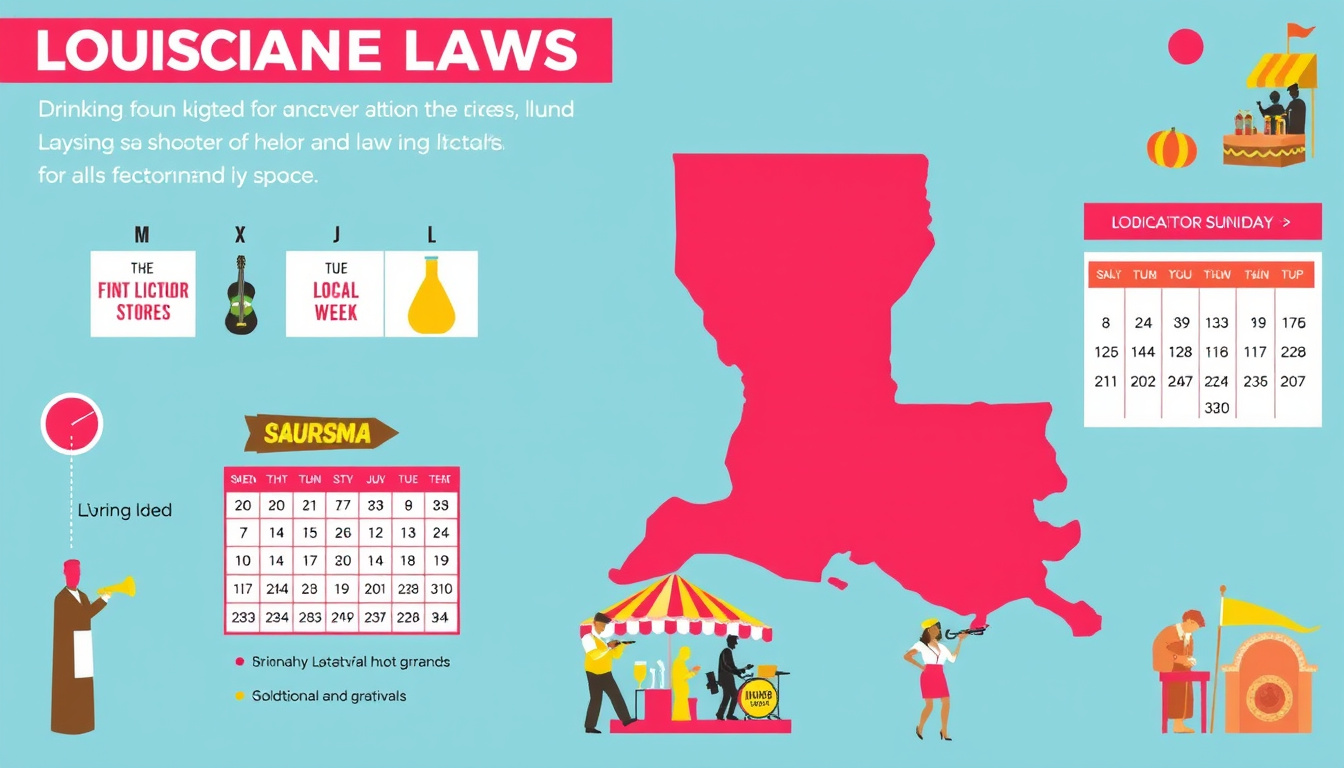
Current Regulations Under Louisiana Blue Laws
The blue laws in Louisiana, often referred to as current regulations regarding commercial activities on Sundays and certain holidays, have a rich history rooted in the preservation of religious observance and community standards. So, what is the blue law in Louisiana? Essentially, these laws prohibit various types of commerce on Sundays, particularly the sale of alcohol and specific retail items, reflecting the state’s cultural values and heritage. While there have been many amendments and discussions surrounding these laws over the years, today they still significantly impact how businesses operate on Sundays in Louisiana. For example, many grocery stores and alcohol-selling establishments face restrictions that vary by parish, leading to a patchwork of regulations that can confuse both consumers and business owners. Understanding the nuances of Louisiana’s blue laws is crucial for anyone looking to navigate the state’s unique legal landscape, whether you’re a local resident or a visitor.
Impact of Blue Laws on Businesses and Consumers
Blue laws, particularly in Louisiana, represent a unique blend of legislation aimed at regulating certain behaviors on Sundays and, in some cases, specific holidays. As we delve into the question, ‘What is the blue law in Louisiana?’ we uncover regulations that primarily prohibit various commercial activities on Sundays. These laws have historically been rooted in religious traditions, aiming to preserve the sanctity of the Sabbath. For businesses, the impact of these blue laws can be significant. Many retail establishments, particularly those dependent on weekend sales, find their operations limited, resulting in reduced revenue potential. On the consumer side, shoppers seeking to take advantage of their days off may encounter frustration due to the lack of available services and stores, potentially driving them to seek options in neighboring states with more lenient regulations. The ongoing debate regarding the relevance and necessity of such laws continues to evolve, particularly as societal norms shift towards a more secular approach to the workweek. Understanding the implications of blue laws in Louisiana is essential for both business owners and consumers navigating this complex legal landscape.
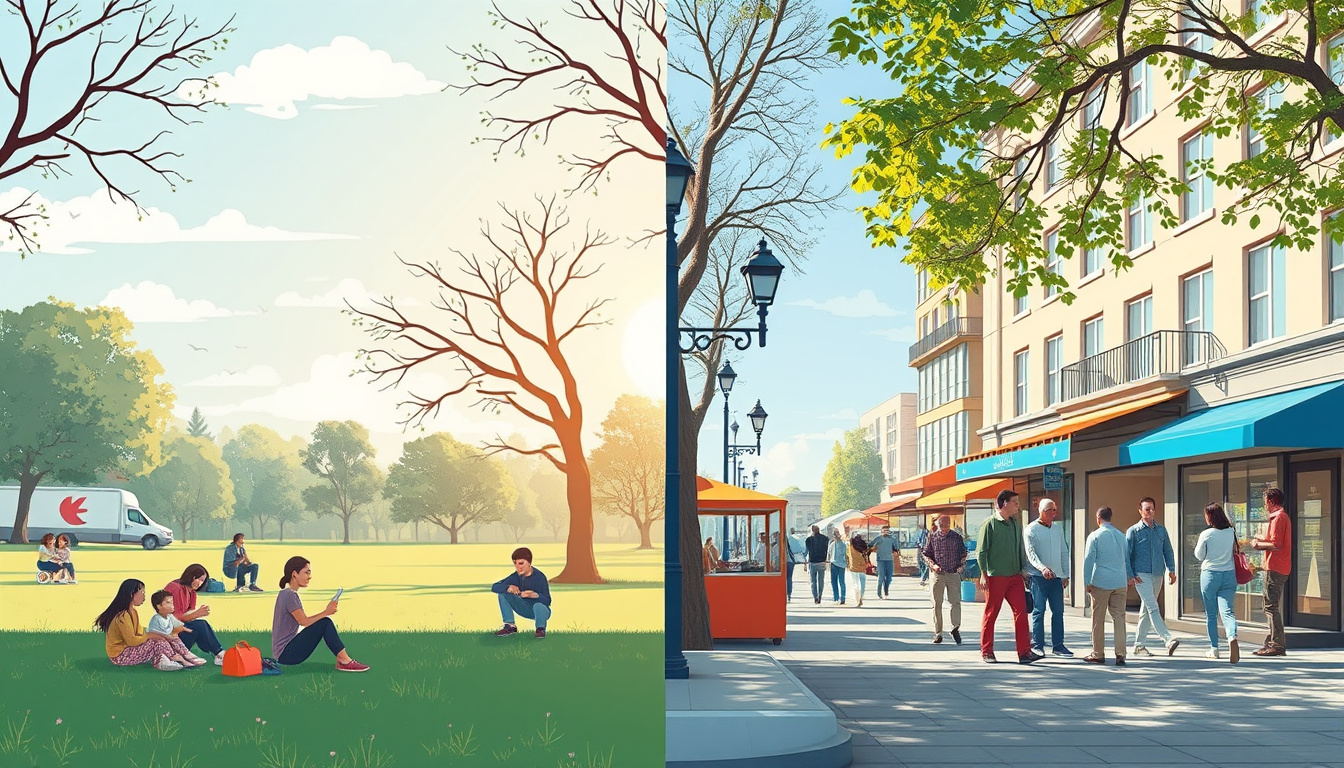
Arguments For and Against Blue Laws
The topic of blue laws, particularly in relation to Louisiana, often stirs debate among various community members. What is the blue law in Louisiana? Essentially, blue laws refer to regulations that restrict certain activities on Sundays or other designated days, historically aimed at maintaining religious observance and moral standards. Proponents of blue laws argue that they serve to encourage family time and community cohesion, providing a day of rest from the hectic pace of the week. Additionally, supporters often claim that these laws uphold traditional values, preserving the cultural identity of regions with strong religious influences. Conversely, critics of blue laws contend that they infringe upon personal freedoms and economic choices, limiting both consumer options and business operations, especially in a diverse state like Louisiana where tourism and hospitality play vital roles in the economy. They advocate for the repeal of such laws, suggesting that modern society should allow individuals to make their own choices on how to spend Sundays without government intervention. The discussion surrounding blue laws in Louisiana invites a broader examination of the intersection between law, morality, and personal liberties.
Future of Blue Laws in Louisiana
The future of blue laws in Louisiana continues to hold significant interest for both residents and lawmakers alike as it reflects the evolving relationship between state regulations and societal norms. Blue laws, which are statutes prohibiting various activities on Sundays, primarily aim to uphold religious observances and promote a family-oriented day of rest. In Louisiana, these laws impact a range of activities, from prohibiting the sale of alcohol to restricting certain business operations. However, as the state grapples with economic pressures and shifting values, questions arise surrounding the necessity and relevance of these laws. As Louisiana strives to balance tradition with modernity, many are asking: What is the blue law in Louisiana, and will its legacy continue into the future? Advocates for reform argue that adjusting these laws could boost local businesses, especially in tourist-driven areas. Meanwhile, proponents of the blue laws highlight their role in preserving cultural heritage and the significance of maintaining a day of rest. As lawmakers consider the implications of change, the trajectory of blue laws in Louisiana remains a topic ripe for discussion.
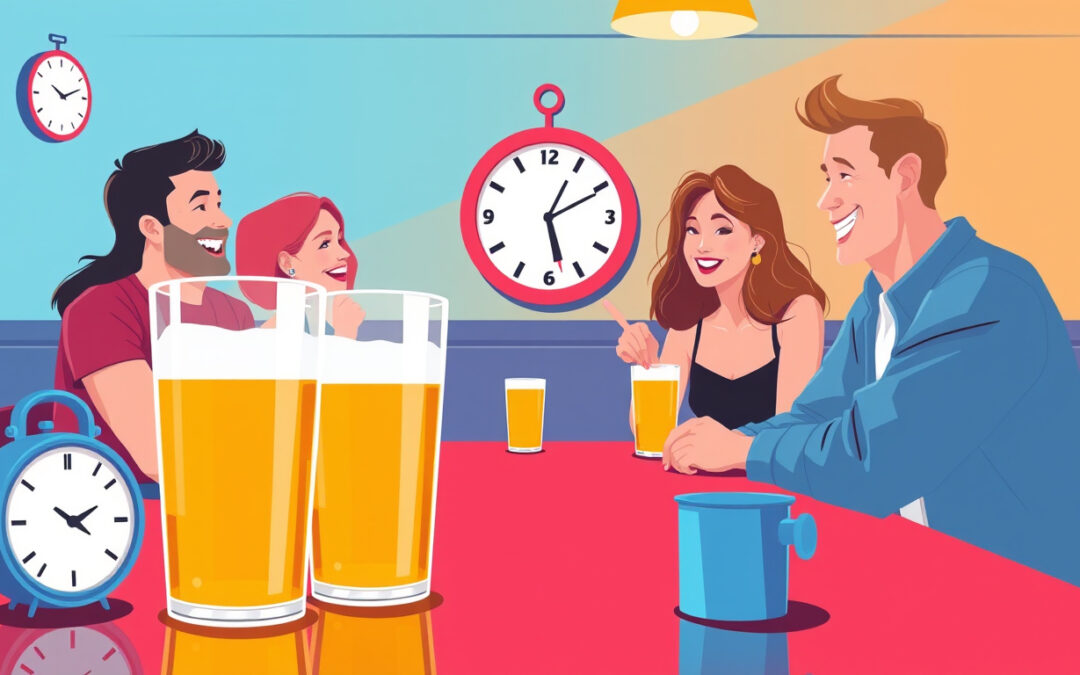
BLOG
Understanding how long it takes for alcohol to leave your system is crucial for anyone who enjoys social drinking or who wants to stay responsible on the roads. This article will dive deep into the question: How long does it take for 3 beers to get out of your system? We’ll explore how alcohol is metabolized by the body, the various factors that influence the elimination process, and average timelines for alcohol clearance. Additionally, we’ll touch upon the implications of alcohol consumption on health and provide practical tips for safe drinking and recovery.
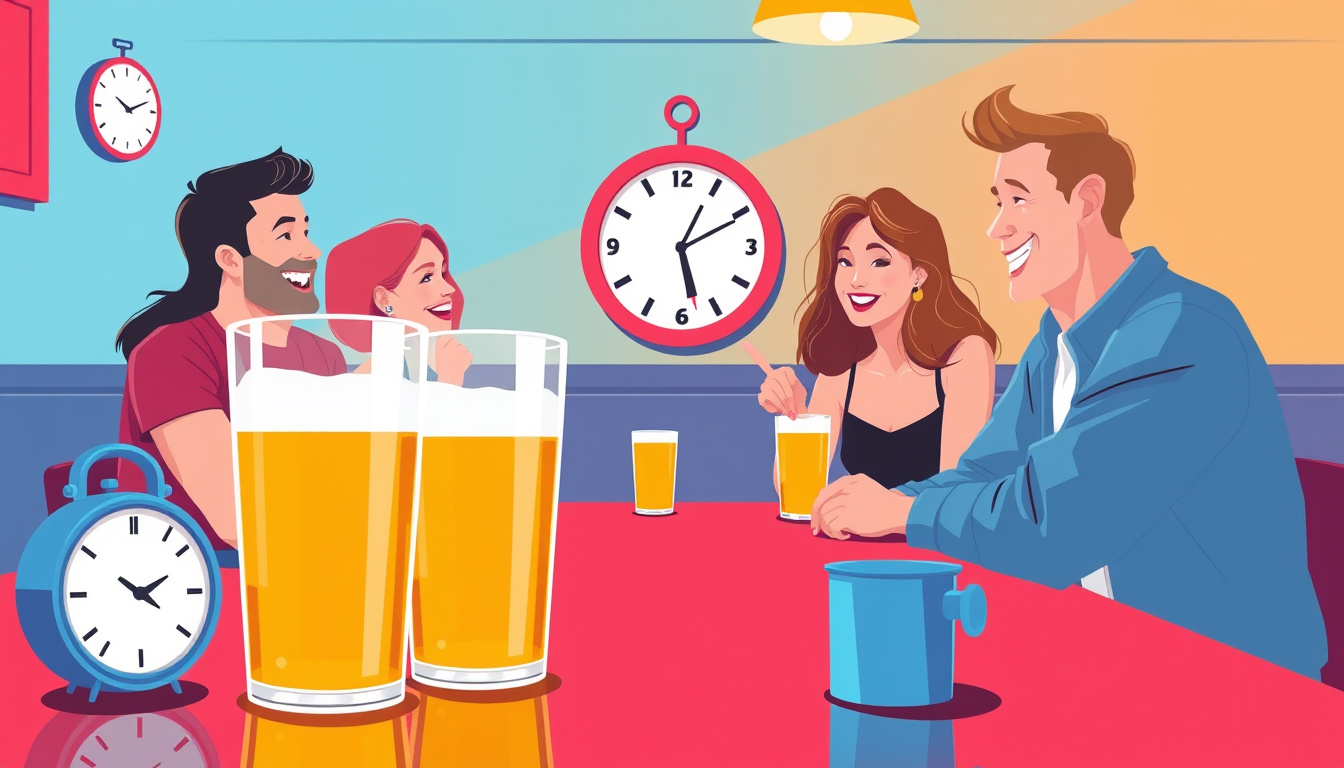
Key Takeaways
- Alcohol metabolism varies among individuals due to factors like age, weight, and overall health.
- On average, it takes about 1 to 2 hours for one standard beer to leave your system.
- Drinking three beers could take approximately 3 to 6 hours to fully be eliminated from your body.
- Blood alcohol levels can be tested using breathalyzers or blood tests to determine sobriety.
- Safe drinking practices and knowing your limits can significantly reduce health risks associated with alcohol consumption.
Understanding Alcohol Metabolism
Understanding alcohol metabolism is crucial for anyone curious about how long it takes for their body to process alcohol. When you consume beverages like beer, your liver primarily processes the alcohol, breaking it down at a relatively constant rate. On average, the body can metabolize approximately one standard drink per hour, which includes about 12 ounces of beer. Therefore, if you consume three beers, you can expect it to take around three hours for them to clear from your system. However, this timeframe can vary based on several factors, such as your weight, age, gender, and overall health. Additionally, drinking on an empty stomach may accelerate the effects of alcohol, leading to a longer recovery period. Understanding how long it takes for 3 beers to get out of your system can help you make informed decisions about drinking, particularly when planning activities like driving or operating machinery.
Factors That Affect Alcohol Elimination
When considering how long it takes for 3 beers to get out of your system, several factors come into play that influence the rate of alcohol elimination. Firstly, individual metabolism plays a crucial role; the liver processes alcohol, and variations in metabolic rates can lead to different elimination times. Additionally, body weight and composition affect how alcohol is distributed throughout your system, with larger individuals generally processing alcohol more efficiently. Age is another factor; younger individuals often eliminate alcohol more quickly than older adults. Gender matters too, as women typically have a higher body fat percentage and different water composition, which can slow down alcohol clearance compared to men. Furthermore, drinking on a full stomach can reduce the effects of alcohol and the speed at which it enters the bloodstream, potentially affecting how long it stays in your system. Lastly, any medications or health conditions may also influence liver function and, consequently, alcohol elimination rates. Understanding these factors can provide a rough estimate of how long you should wait after drinking before considering driving or engaging in other activities that require sobriety.
‘It is better to be thought a fool than to open your mouth and remove all doubt.’ – Abraham Lincoln
 that is significantly above the legal limit for driving in many places. Therefore, it could take anywhere from 2 to 3 hours for just the alcohol from those beers to begin to clear from your bloodstream. However, individual factors such as food intake and hydration levels can also influence this timeline. It’s crucial to consider these aspects not only for safety but also to make informed decisions about alcohol consumption.</p><p><img src=)
Health Implications of Alcohol Consumption
When considering the health implications of alcohol consumption, one crucial question often arises: how long does it take for 3 beers to get out of your system? The answer can vary based on several factors including body weight, metabolism, age, and overall health. Generally, the body processes alcohol at a rate of about one standard drink per hour. Therefore, if you consume three beers, which is approximately equivalent to three standard drinks, it would typically take around three hours for your body to metabolize the alcohol completely. However, this timeframe can be affected by factors such as food intake – drinking on an empty stomach can speed up absorption – and individual biological differences, making it essential for individuals to be mindful of their own bodies and the potential risks associated with alcohol consumption.
Tips for Safe Drinking and Recovery
When it comes to social drinking, many people often wonder, ‘How long does it take for 3 beers to get out of your system?’ This question is particularly important for those who prioritize safe drinking and recovery. Generally, the body metabolizes alcohol at a rate of about one standard drink per hour. Therefore, if you’ve consumed three beers, you can expect it to take approximately three hours for the alcohol to clear your system. However, individual factors such as weight, age, gender, and overall health can influence this timeframe. To promote safe drinking and ensure a better recovery, it’s essential to stay hydrated, eat before and while drinking, and pace your consumption. By monitoring how much you drink and allowing sufficient recovery time, you can enjoy social occasions responsibly while minimizing the effects of alcohol on your body.
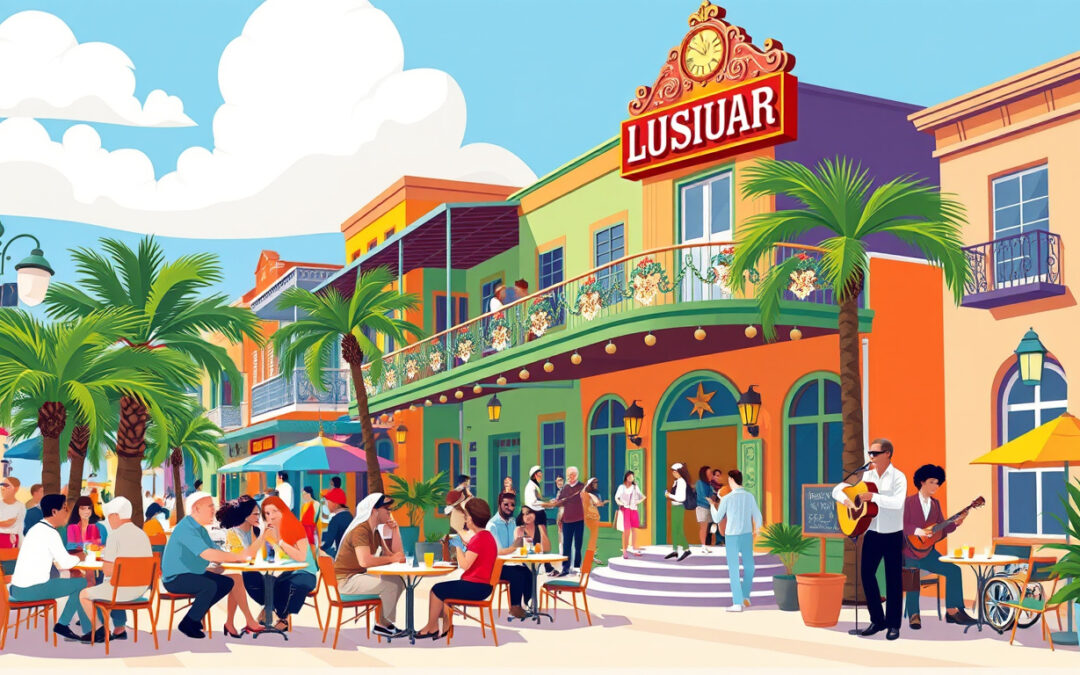
BLOG
Navigating the ins and outs of obtaining a liquor license can be a complex process, particularly in Louisiana where the unique culture and regulations shape the industry. If you’ve ever wondered, ‘How much does it cost to get a liquor license in Louisiana?’ you’re not alone. This article will delve into the various types of liquor licenses available, the costs associated with them, and the other factors that can influence your investment. Whether you’re planning to open a bar, restaurant, or retail store, understanding these aspects will help you make an informed decision.
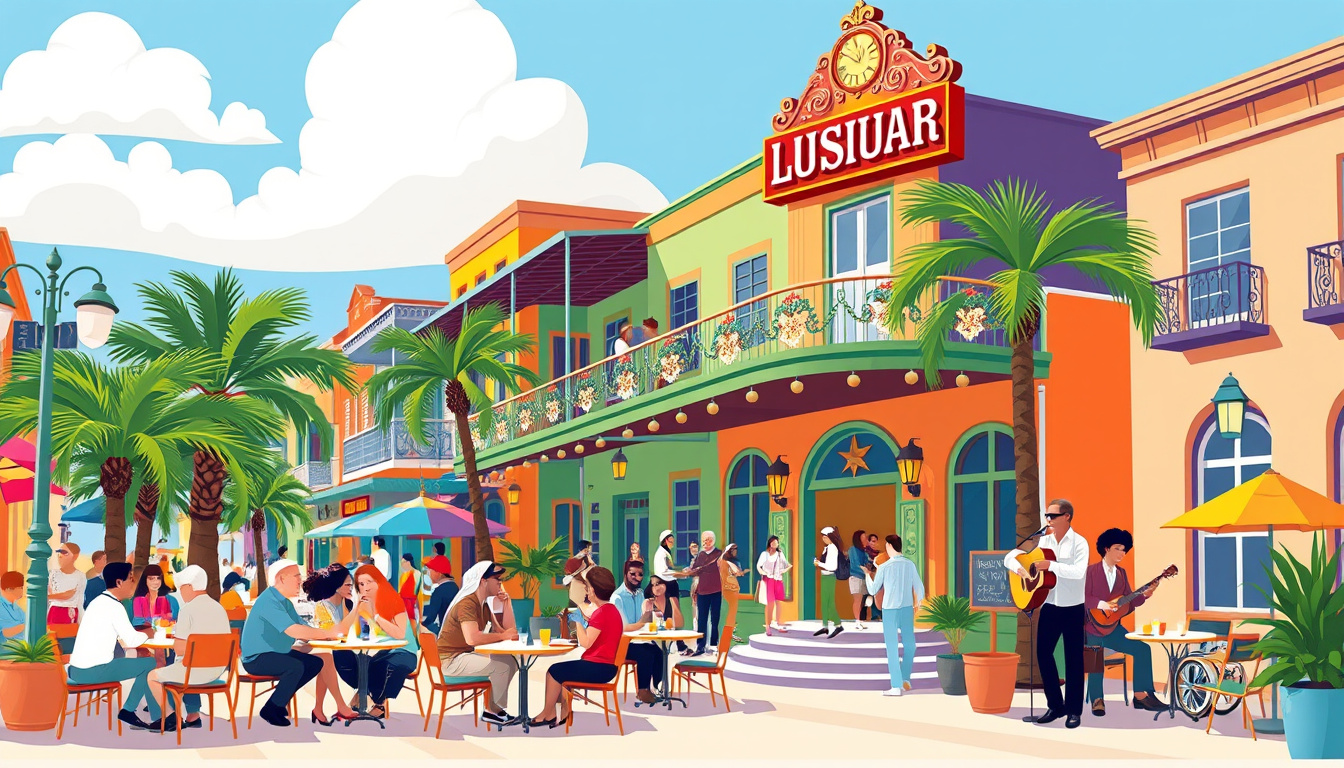
Key Takeaways
- Louisiana offers various types of liquor licenses, each with different costs.
- The total price of a liquor license in Louisiana depends on several factors, including location and business type.
- Base costs vary significantly between different categories of liquor licenses.
- In addition to base costs, there may be additional fees related to compliance and local regulations.
- Renewal fees and ongoing expenses should be factored into the overall investment for maintaining a liquor license.
Understanding Liquor License Types in Louisiana
When considering the question, ‘How much does it cost to get a liquor license in Louisiana?’, it’s essential to first understand the different types of liquor licenses available in the state. Louisiana offers various licenses that cater to different types of establishments, including retail, wholesale, and manufacturers. The fees associated with these licenses can vary significantly based on the type of license you need and the local jurisdiction. Typically, costs can range from a few hundred to several thousand dollars. Additionally, local municipalities may impose their own fees and requirements, which can further affect the price. Therefore, it is crucial for potential applicants to conduct thorough research on both state and local regulations to estimate the total cost accurately and ensure compliance with all legal guidelines.
Factors Affecting the Cost of a Liquor License
When considering the question, ‘How much does it cost to get a liquor license in Louisiana?’ it’s vital to understand that the price can vary significantly based on several key factors. Firstly, the type of liquor license required plays a crucial role in determining the cost. For example, a retail dealer’s license for on-premises consumption typically incurs higher fees than a license for off-premises consumption. Additionally, the location of your establishment can influence licensing fees; urban areas often see higher costs due to demand and regulatory requirements. Business size and the specific community regulations in place, such as zoning laws and local ordinances, can also impact the overall cost. Furthermore, applicants should account for potential legal fees, application processing costs, and any necessary permits that may be required before applying for the license. Understanding these factors is essential for anyone asking, ‘How much does it cost to get a liquor license in Louisiana?’ as they collectively shape the total financial commitment required to operate legally.
‘The price of greatness is responsibility.’ – Winston Churchill
 liquor licenses are categorized primarily into three types: retail permits for on-premise consumption, retail permits for off-premise consumption, and wholesalers. For instance, a basic retail package license for an individual establishment can range from 0 to ,000, depending on the municipality and the specific type of establishment, such as a bar or restaurant. Additionally, there may be local fees or additional costs tied to zoning requirements or specific operational permits that could affect the overall expense. It’s vital for prospective applicants to research both state and local regulations to get a clear picture of the entire financial commitment involved in securing a liquor license in Louisiana.
liquor licenses are categorized primarily into three types: retail permits for on-premise consumption, retail permits for off-premise consumption, and wholesalers. For instance, a basic retail package license for an individual establishment can range from 0 to ,000, depending on the municipality and the specific type of establishment, such as a bar or restaurant. Additionally, there may be local fees or additional costs tied to zoning requirements or specific operational permits that could affect the overall expense. It’s vital for prospective applicants to research both state and local regulations to get a clear picture of the entire financial commitment involved in securing a liquor license in Louisiana.
Additional Fees and Considerations
When exploring the question of \’How much does it cost to get a liquor license in Louisiana?\’ it is essential to consider not just the base fees associated with the application, but also any additional fees and potential costs that may arise throughout the process. In Louisiana, the initial application fee can range from $100 to $1,000 depending on the license type—whether it’s for a retail establishment, a bar, or a distribution center. Beyond this, additional costs may include background check fees, local permits, and renewal fees, which typically occur every one to three years. Businesses should also account for legal advice or consultation fees, especially if navigating through the complexities of state and local regulations. Understanding these fees is crucial for anyone looking to operate a successful establishment serving alcohol in Louisiana.
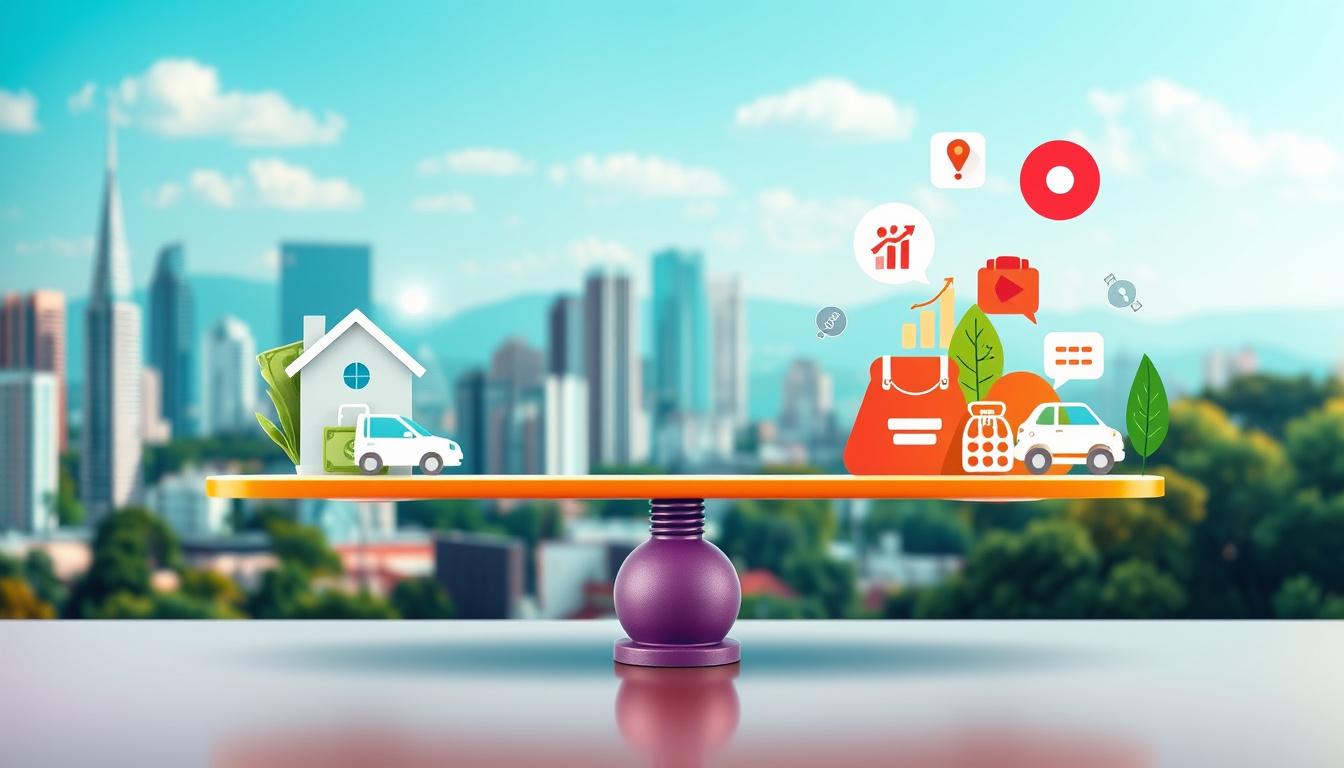
Renewal Fees and Ongoing Costs
When considering the question, ‘How much does it cost to get a liquor license in Louisiana?’ it’s essential to factor in not just the initial application fees but also the renewal fees and ongoing costs associated with maintaining the license. Louisiana’s liquor license fees can vary widely based on the type of establishment and the specific license required, but applicants should be prepared for annual renewal fees which can range from a few hundred to several thousand dollars. Additionally, establishments must consider costs related to compliance with state regulations, insurance, and potential local permits, all of which contribute to the ongoing financial commitment of holding a liquor license in Louisiana. Proper budgeting for both initial and renewal fees is crucial for any business aiming to serve alcohol legally and sustainably.
Conclusion: Is the Investment Worth It?
In concluding our exploration of the often-asked question, ‘How much does it cost to get a liquor license in Louisiana?’ it is crucial to assess whether this investment can yield significant returns for aspiring business owners. The cost of obtaining a liquor license can vary widely depending on the type of license required, typically ranging from a few hundred to several thousand dollars. This initial expense may seem daunting, but considering the state’s thriving hospitality industry, the potential for profit is considerable. It is essential to weigh the costs against the anticipated revenues from alcohol sales, which can significantly boost your business’s bottom line. Moreover, understanding the ongoing fees and regulatory requirements can help you make an informed decision about whether this investment aligns with your business goals. Ultimately, while the financial commitment is palpable, the opportunities within Louisiana’s vibrant nightlife and dining scene may make securing a liquor license a worthwhile endeavor.
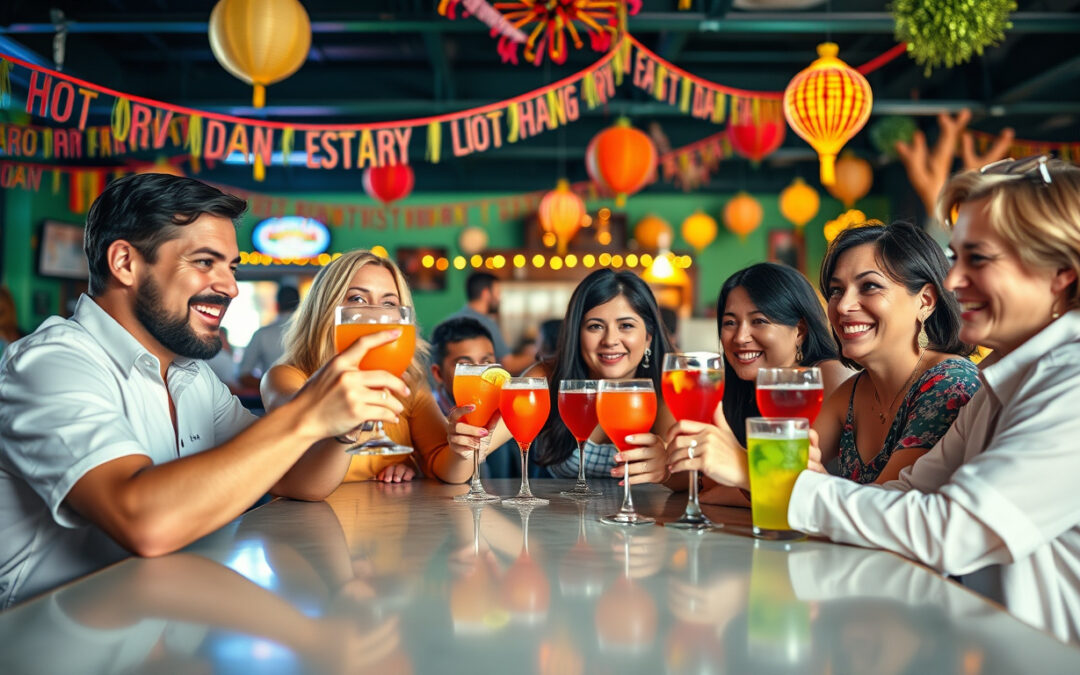
BLOG
Navigating the laws surrounding alcohol consumption can often be a complex task, especially for families wanting to enjoy a night out together. One common question that arises is: can an 18 year old drink in a bar with their parents in Louisiana? Understanding the legal framework surrounding this topic is crucial for parents and young adults alike. In this article, we will explore Louisiana’s drinking laws, the legal age for alcohol consumption, parental supervision exceptions, the nature of bar environments, and the potential consequences for non-compliance with these regulations.
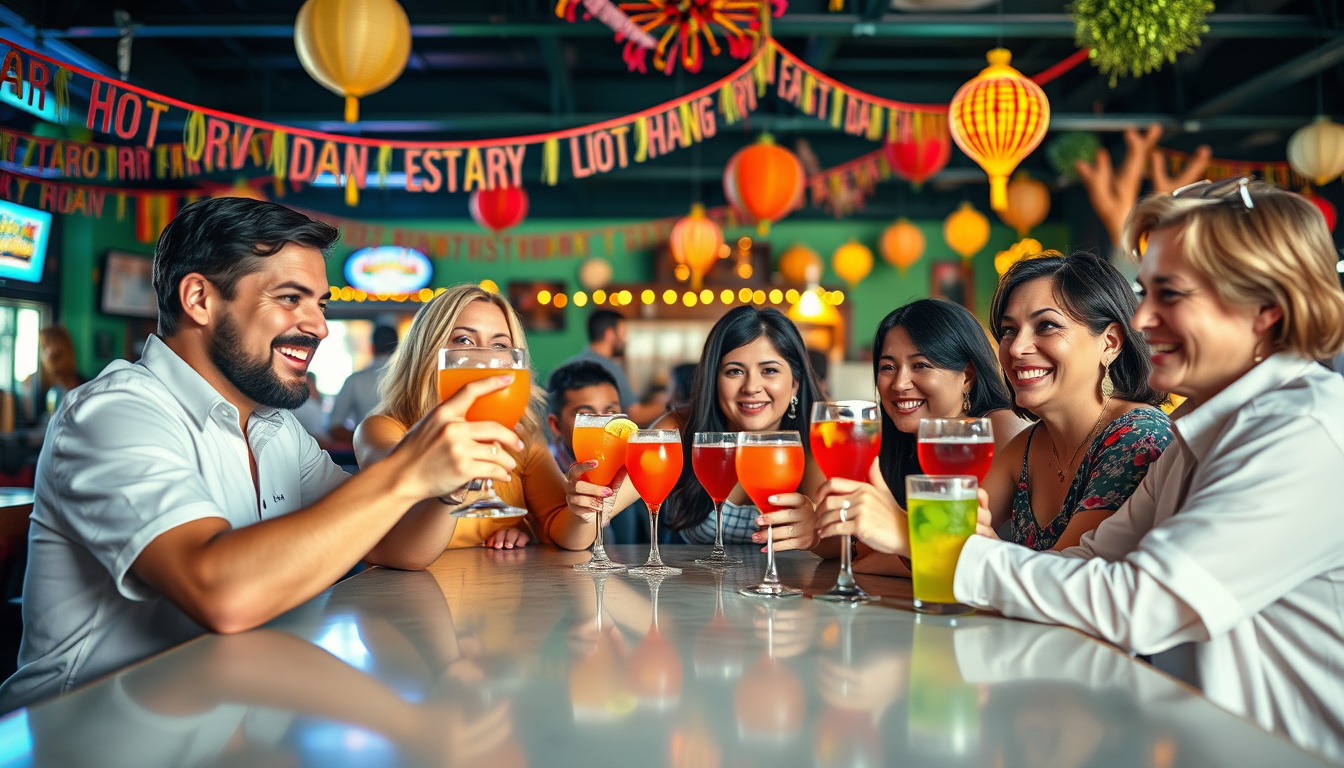
Key Takeaways
- The legal drinking age in Louisiana is 21, but there are specific exceptions for minors.
- In Louisiana, 18-year-olds can drink alcohol in a bar if accompanied by a parent or guardian.
- Parental supervision does not completely exempt minors from legal restrictions on alcohol consumption.
- Bars may have their own policies regarding minors, regardless of state law.
- Parents should be aware of potential legal consequences and responsibilities when allowing their child to drink.
Overview of Louisiana’s Drinking Laws
In Louisiana, the drinking laws are quite distinctive, particularly when it comes to minors and their ability to consume alcohol. The legal drinking age in the state is 21; however, there’s a notable exception to this rule that has garnered attention. According to Louisiana law, individuals who are 18 years old can indeed drink in a bar if they are accompanied by a parent or legal guardian. This provision allows parents to share a drink with their children in a controlled environment, fostering responsibility and family bonding over a casual beverage. However, it is important to remember that while 18-year-olds can drink in this specific scenario, all other aspects of drinking laws still apply, including identification checks and regulations regarding the sale of alcohol to minors.
Legal Age for Alcohol Consumption
When it comes to understanding the legal age for alcohol consumption in the United States, many people wonder, ‘Can an 18 year old drink in a bar with their parents in Louisiana?’ In Louisiana, the legal drinking age is 21, which means that generally, individuals under this age cannot legally consume alcohol in bars or establishments that serve alcoholic beverages. However, there are some exceptions to this rule. In Louisiana, an 18-year-old may sip alcohol in a bar if they are accompanied by a parent or legal guardian. This nuance allows for family outings where responsible drinking can be demonstrated, but it’s essential to note that the establishment itself has the discretion to enforce stricter policies. Thus, while the law permits an 18-year-old to drink in a bar under parental supervision, it’s always wise to check with the specific venue regarding their rules. Understanding these legalities helps to ensure safe and enjoyable experiences for families who wish to share a meal or a toast together.
‘In the end, it’s not the years in your life that count. It’s the life in your years.’ – Abraham Lincoln

Parental Supervision and Exceptions
In Louisiana, the legal drinking age is 21, but there are specific circumstances under which an 18-year-old can enjoy a drink in a bar with their parents. According to Louisiana law, minors who are 18 years old can legally consume alcohol in the presence of a parent or legal guardian at certain locations, including bars. This exception is designed to allow families to share a drink responsibly in a social setting. However, it’s important to note that this privilege comes with restrictions; the parents must be with their child at all times, and the establishment must comply with state laws regarding the sale and consumption of alcohol. So, if you’re wondering, ‘Can an 18-year-old drink in a bar with their parents in Louisiana?’ the answer is yes, as long as these conditions are met.
Understanding the Bar Environment
Understanding the bar environment in Louisiana can be complex, particularly regarding the age restrictions surrounding alcohol consumption. A common question arises: ‘Can an 18 year old drink in a bar with their parents in Louisiana?’ The answer is yes, but with specific conditions. In Louisiana, state law allows minors aged 18 to 20 to be present in bars, provided they are accompanied by a parent or guardian. However, while they can enter and remain in the establishment, the consumption of alcoholic beverages is not permitted for those under 2
1. This nuanced regulation reflects Louisiana’s unique approach to alcohol laws, balancing family inclusion with legal age requirements. Therefore, while offspring can join their parents at a bar, they must adhere to these stipulations to avoid any legal issues and ensure a pleasant outing for all.
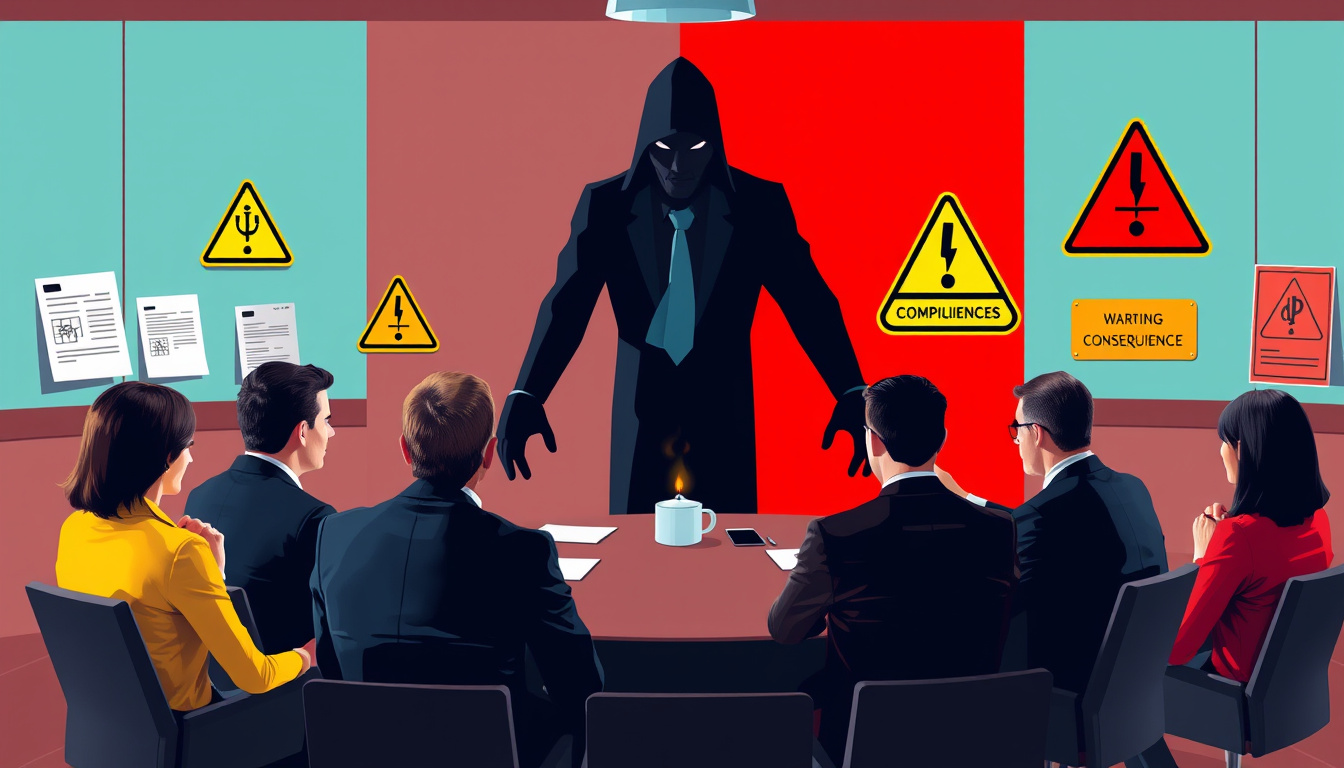
Potential Consequences for Non-Compliance
In Louisiana, the question ‘Can an 18 year old drink in a bar with their parents?’ is one that often arises among both residents and visitors looking to navigate the state’s relatively lenient alcohol laws. Under Louisiana law, individuals aged 18 and older can legally purchase and consume alcohol in bars, but it’s important to note that there are specific conditions concerning parental supervision. While an 18-year-old can indeed drink in public places like bars if accompanied by a parent or legal guardian, failure to adhere to proper identification requirements and local establishments’ policies can lead to potential consequences. Bars may face penalties for serving underage patrons if they do not verify age appropriately, which could include fines or license suspensions. Likewise, parents who allow their underage children to drink in an unsupervised setting could potentially face legal repercussions. Therefore, while enjoying a drink with your 18-year-old at a bar can be a bonding experience, both parties must be aware of and comply with state regulations to avoid any legal complications.
Conclusion and Recommendations for Parents
In conclusion, the question of whether an 18-year-old can drink in a bar with their parents in Louisiana is governed by specific state laws that allow minors to consume alcohol under certain circumstances. Louisiana law permits minors aged 18 and older to legally enter bars and consume alcohol when accompanied by a parent, guardian, or spouse who is of legal drinking age. Therefore, if you are a parent considering taking your 18-year-old to a bar, this is legally permissible in Louisiana, provided you are present. However, it is crucial to be aware of the establishment’s policies regarding underage patrons, as some bars may impose additional restrictions. We recommend that parents take this opportunity to educate their children about responsible drinking habits while fostering a safe and controlled environment. Open discussions about alcohol consumption, its effects, and the importance of moderation can be beneficial. Always prioritize safety, legality, and mutual respect in these situations.

BLOG
As we step into 2025, the vibrant nightlife offered by bars and pubs remains a favorite pastime for many. While these establishments provide an avenue for relaxation and socializing, they are also a breeding ground for various bar scams. Understanding bar scams in 2025 is crucial to ensuring that your night out remains enjoyable and safe. This article delves into the most common types of bar scams, offering insights on how to identify them, real-life examples that illustrate these fraudulent activities, and practical tips to protect yourself while enjoying a night out. By staying informed, you can enjoy your time at bars without falling victim to deception.

Key Takeaways
- Bar scams in 2025 are becoming increasingly sophisticated and prevalent.
- Common scams include overcharging, fake drink specials, and fraudulent bar tabs.
- Identifying a bar scam involves being aware of unusual pricing or tricky payment methods.
- Real-life examples illustrate the potential financial impact of these deceptive practices.
- Staying safe at bars requires vigilance and knowing how to report scams effectively.
Introduction to Bar Scams in 2025
As nightlife continues to thrive in cities across the globe, understanding bar scams in 2025 becomes increasingly significant for both patrons and proprietors alike. In this ever-evolving landscape, where savvy criminals adapt to new technologies and trends, the tactics employed in bar scams have grown more sophisticated. In 2025, consumers need to be aware of common scams such as overpriced drinks, fake cover charges, and underhanded credit card practices. This guide not only aims to shed light on these tactics but also provides practical tips for staying safe while enjoying the vibrant bar scene, ensuring that your nights out remain enjoyable and scam-free.
Common Types of Bar Scams
As we navigate through 2025, it’s essential to recognize the common types of bar scams that can catch even the most vigilant patrons off guard. These deceptive practices have evolved with technology and trends, making it crucial for bar-goers to stay informed. One prevalent scam involves inflated drink prices, where customers receive a significantly higher bill than expected, often due to misrepresented drink specials or hidden fees. Another frequent scam observed in 2025 is the ‘fake tab’ scam, where patrons find themselves charged for drinks they never ordered, as bar staff may take advantage of distraction or confusion in busy environments. Additionally, the prevalence of ‘chargebacks’ has seen an uptick, where criminals exploit payment systems to reverse legitimate charges after enjoying a night out. By being aware of these tactics and staying vigilant, consumers can better protect themselves against bar scams in 2025 and ensure their nightlife experiences remain enjoyable and safe.
‘An informed populace is the best defense against scams of all kinds.’ – Unknown

How to Identify a Bar Scam
As we navigate through the entertaining yet sometimes murky waters of nightlife, being aware of potential bar scams in 2025 has become increasingly important for patrons looking to enjoy their evening out without falling victim to deceit. Identifying a bar scam starts with understanding the common tactics used by unscrupulous venues. One prevalent scheme involves inflated drink prices, where customers find themselves charged exorbitantly high rates for standard beverages, often disguised as premium offerings. Always scrutinize the menu before ordering and be wary of vague descriptions. Additionally, bartenders may employ tactics like serving watered-down drinks while still charging for top-shelf liquor. Another red flag is excessive closing costs or sudden changes in tab amounts that seem inconsistent with your orders. Furthermore, it’s wise to keep an eye out for unusual behaviors among staff, such as insisting on cash payment despite having card facilities. By being vigilant and educated about these common traps associated with bar scams in 2025, patrons can ensure a safer and more enjoyable night out.
Real-Life Examples of Bar Scams
As 2025 unfolds, bar scams have evolved, presenting new challenges for patrons and owners alike. One common scheme involves over-inflated drink prices, where unsuspecting customers are charged exorbitantly for cocktails that should cost significantly less. For example, in a downtown hotspot, a group of friends ordered standard drinks and were later shocked to find a $200 bill for what they assumed were $10 each cocktails. Another alarming trend is the ‘fake bartender’ scam, where individuals, impersonating staff on busy nights, convince patrons to pay for drinks that never arrive. Similar to this, a scheme in a vibrant social scene involved fake drink wristbands, allowing scammers to sell counterfeit access to exclusive bar offerings. These real-life examples highlight the increasing sophistication of bar scams in 2025, underscoring the importance of vigilance and awareness for consumers enjoying a night out.

Tips for Staying Safe at Bars
As we navigate the social landscape of 2025, it’s essential to be aware of potential dangers, particularly when it comes to bar scams that may target unsuspecting patrons. To help you have a safe and enjoyable night out, here are some key tips. First, always keep an eye on your drink to avoid any tampering; never accept drinks from strangers unless you can see them being prepared. Second, be cautious of overly friendly staff or participants in conversation—bar scams often involve building trust before taking advantage of victims. Third, trust your instincts; if a situation feels wrong, remove yourself and seek help if needed. Lastly, it’s wise to stick with friends and designate a sober driver or use rideshare services to ensure you get home safely. By staying vigilant and informed about bar scams in 2025, you can enhance your nightlife experience while reducing risks.
Reporting Bar Scams and Seeking Help
As we move deeper into 2025, awareness of bar scams is more crucial than ever. These fraudulent activities can take many forms, from inflated drink prices to deceptive promotional offers that lead unsuspecting patrons to spend more than intended. If you find yourself a victim of bar scams in 2025, it’s essential to report the incident to local authorities immediately. This not only aids in the prevention of future scams but can also help you seek restitution for any losses incurred. Additionally, consider reaching out to consumer protection organizations, which can provide guidance on how to address these issues effectively. Sharing your experiences on social media can also be an impactful way to warn others and foster a community that is vigilant against such scams.

BLOG
Interacting with drunk people can be a challenging experience, especially when the effects of alcohol can alter their behavior significantly. Whether you find yourself in a social setting or must intervene in a potentially dangerous situation, understanding how to engage with intoxicated individuals safely and effectively is crucial. In this article, we present 10 essential tips for ensuring your interactions are both respectful and constructive while minimizing any potential risks. By learning how to approach these situations with empathy and caution, you can help ensure everyone involved remains safe and calm.

Key Takeaways
- Alcohol can impair judgment and behavior, making it crucial to understand its effects before engaging.
- Approach intoxicated individuals calmly to avoid escalating any potential confrontations.
- Create a safe environment by ensuring both you and the drunk person are in a secure space free from hazards.
- Use clear and simple communication techniques to improve understanding and reduce frustration.
- Be vigilant for signs of distress or danger, and don’t hesitate to involve authorities if necessary.
Understanding the Effects of Alcohol on Behavior
Understanding the effects of alcohol on behavior is crucial, especially when it comes to interacting with drunk people. Alcohol is a central nervous system depressant that can significantly alter an individual’s mood, perception, and decision-making abilities. When engaging with someone who has been drinking, it’s important to recognize that their inhibitions may be lowered, leading to unpredictable behavior such as increased aggression or exaggerated emotional responses. For example, a normally reserved person might become overly candid or outgoing, while another might withdraw and appear disengaged. Recognizing these changes enables you to navigate conversations more effectively, as maintaining patience and empathy is key when interacting with drunk people. Additionally, being aware of the potential for impaired judgment can help you steer conversations away from sensitive topics that could provoke conflict. Ultimately, understanding alcohol’s impact on behavior is essential for ensuring a positive and safe interaction.
Approaching Drunk Individuals Calmly
Interacting with drunk people can often be a challenging yet necessary experience, especially during social gatherings or when someone appears to be in distress. The key to approaching drunk individuals calmly lies in maintaining a non-confrontational demeanor and offering a sense of safety. Begin by establishing eye contact and using a warm tone to convey empathy, as this can help to de-escalate any potential tension. It’s essential to approach them in a quiet area to avoid overwhelming them with noise or distractions. When engaging in conversation, use simple language and direct questions to ensure comprehension; this can also help keep the interaction light and non-threatening. By remaining patient and supportive, you can create a more positive environment that facilitates meaningful engagement, ultimately ensuring both your safety and that of the intoxicated individual.
‘The best way to cheer yourself is to try to cheer someone else up.’ – Mark Twain

Establishing a Safe Environment for Interaction
Establishing a safe environment for interaction is crucial when it comes to interacting with drunk people. First and foremost, it’s important to approach the situation with empathy and understanding. Drunk individuals may be disoriented, emotional, or even unpredictable, so creating a calming atmosphere can help manage their behavior. Choose a quiet space away from loud music and distractions, where they can feel more secured. Additionally, set clear boundaries for the interaction; this not only protects yourself but also allows the person to understand the limits of acceptable behavior. Always prioritize safety—if a situation escalates or you feel uncomfortable, don’t hesitate to seek assistance from friends or staff in the vicinity. Understanding how to engage effectively with intoxicated individuals not only ensures their well-being but also fosters respectful interactions, making it a fundamental skill in social environments.
Effective Communication Techniques with Intoxicated People
Interacting with drunk people can be challenging, but employing effective communication techniques can help improve the experience for both parties. First and foremost, it’s essential to remain calm and patient; acknowledge that the individual’s cognitive abilities may be impaired. Using clear and simple language is beneficial—avoid complex sentences or abstract concepts that could confuse them. Maintain eye contact and use a gentle tone to convey a sense of control and reassurance. Additionally, be mindful of your body language; adopting an open stance can help ease any anxiety they may be feeling. If the situation permits, encourage open dialogue by asking questions that require simple answers. In scenarios where intoxication leads to confrontational behavior, it’s wise to de-escalate the situation by redirecting the conversation toward safer topics or simply walking away if necessary. Overall, effective communication while interacting with drunk people hinges on compassion, clarity, and a focus on safety for everyone involved.

Recognizing Signs of Distress or Danger in Drunk Individuals
When interacting with drunk people, it’s essential to recognize signs of distress or danger that may arise from their intoxication. Alcohol can impair judgment and lower inhibitions, leading to behavior that may be harmful either to themselves or others. Look for physical signs such as unsteady movements, slurred speech, or an inability to maintain balance. Additionally, emotional cues like sudden mood swings, aggression, or extreme sadness can indicate an escalating situation. It’s also crucial to pay attention to their level of awareness; if someone is unresponsive or cannot engage in coherent conversation, it may be a sign that they require immediate assistance. By being vigilant and understanding these indicators, you can ensure a safer environment and provide support when interacting with drunk people.
Knowing When to Involve Authorities or Seek Help
Interacting with drunk people can be a tricky situation that requires not only patience but also a keen sense of awareness regarding safety and well-being. Knowing when to involve authorities or seek help is crucial, especially if the individual exhibits aggressive behavior, is a danger to themselves or others, or is unable to care for themselves. It’s essential to assess the situation calmly before taking action; if someone is overly intoxicated, disoriented, or threatening, it’s often best to contact law enforcement or a security professional. They are trained to handle these situations effectively and can ensure that everyone remains safe. Additionally, if you notice someone who is in distress due to their level of intoxication, seeking medical assistance may be necessary. Interacting with drunk people should always prioritize safety first, both for the individual inebriated and those around them.






 that is significantly above the legal limit for driving in many places. Therefore, it could take anywhere from 2 to 3 hours for just the alcohol from those beers to begin to clear from your bloodstream. However, individual factors such as food intake and hydration levels can also influence this timeline. It’s crucial to consider these aspects not only for safety but also to make informed decisions about alcohol consumption.</p><p><img src=)


 liquor licenses are categorized primarily into three types: retail permits for on-premise consumption, retail permits for off-premise consumption, and wholesalers. For instance, a basic retail package license for an individual establishment can range from 0 to ,000, depending on the municipality and the specific type of establishment, such as a
liquor licenses are categorized primarily into three types: retail permits for on-premise consumption, retail permits for off-premise consumption, and wholesalers. For instance, a basic retail package license for an individual establishment can range from 0 to ,000, depending on the municipality and the specific type of establishment, such as a 













